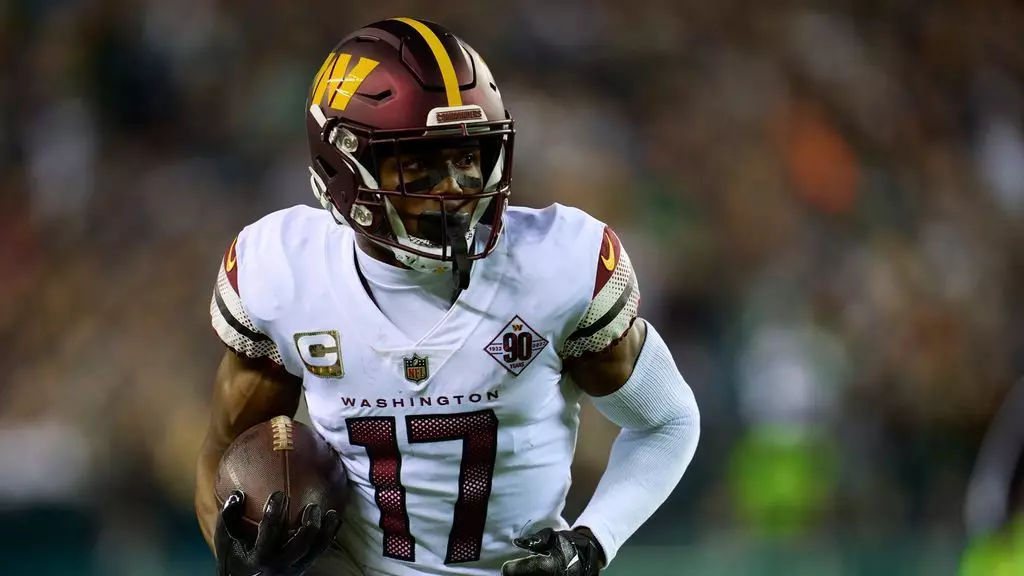In professional sports, especially the NFL, the narrative often frames player requests for trades and contract disputes as mere ins and outs of the business. Coaches like Dan Quinn emphasize that such issues are standard fare, distancing themselves from emotional entanglements and portraying them as routine transactions. But beneath this veneer of professionalism lies a complex web of loyalty, ambition, and disillusionment. When a star player like Terry McLaurin asks for a trade, it becomes clear that the simplistic mantra of “just business” masks the profound personal and collective implications. The idea that these maneuvers are just part of the game trivializes the sacrifices players make, often at the cost of personal stability, team cohesion, and fan trust.
The Fragility of Trust and the Myth of Normalcy
Trust is the foundation of effective team dynamics. When a player publicly submits a trade request, it signifies a fundamental breakdown in that trust. Coaches and management may downplay its significance for public relations, but internally, it sows seeds of doubt. McLaurin’s trade demand, rooted in protracted contract negotiations, symbolically represents a disconnect between players’ aspirations and the team’s financial priorities. The NFL’s narrative—that such requests are “normal”—obscures the emotional toll and the erosion of the authentic relationships that bind a team together. This normalization inadvertently trivializes the concerns of athletes who feel undervalued or betrayed by organizations that prioritize profits over long-term loyalty.
Money Over Morality: The Ethical Dilemma
At the heart of McLaurin’s contract dispute lies a larger ethical question about how the NFL values its players. Washington’s reluctance to offer top-tier money to McLaurin, who has consistently performed at a high caliber, exposes the league’s ruthless prioritization of short-term financial gains. The disparity between McLaurin’s current deal and the lucrative agreements secured by younger, comparable players underscores a troubling tendency to marginalize veteran talent, especially as they approach their Thirties. This strategy not only devalues the contributions of seasoned athletes but also highlights an inherent systemic bias—favoring youth and raw potential over proven consistency.
The Personal Sacrifice and Disillusionment
McLaurin’s journey from a third-round pick to a league-recognized star encapsulates a story of perseverance and loyalty. Yet, the ongoing negotiations threaten to tarnish his legacy within the franchise he’s helped elevate. His recent injury and off-field efforts—signing autographs and engaging with fans—contrast sharply with the undercurrent of frustration. For players like McLaurin, the NFL’s emphasis on relentless performance often comes at the expense of personal well-being and emotional security. The league’s depiction of such disputes as mere business disregards the mental and emotional strain inflicted on athletes who dedicate their lives for fleeting moments of glory.
The Fan and Locker Room Divide
Fan perception adds another layer to this complex scenario. McLaurin’s popularity and consistent performance have made him a beloved figure in Washington. A trade request fractures that affinity, sowing discord among supporters who see him as a symbol of hope and resilience. Meanwhile, in the locker room, relationships are strained as players grapple with the reality that their teammate’s commitment is in question. This division can have lasting repercussions, weakening team cohesion at a critical juncture. It’s a stark reminder that commercial interests often overshadow the communal spirit that sports are supposed to foster.
The Illusory Promise of Resolution
While Quinn asserts that negotiations are ongoing and that the team remains supportive, the reality remains that the core issues—financial fairness, loyalty, and respect—have yet to be resolved. The NFL’s vast revenue-sharing system does little to mask the inequality that persists behind closed doors. McLaurin’s case exemplifies the broader systemic failure to recognize players as individuals with personal rights and aspirations, rather than mere commodities. The promise of eventual resolution is often a hollow gesture, putting a bandage on a wound that’s likely to fester unless the league confronts its own systemic flaws.
As long as the NFL continues to prioritize profits over players’ dignity and emotional well-being, the cycle of disillusionment and distrust will persist. McLaurin’s trade request is not just about a contract; it’s a symptom of a deeper malaise afflicting modern professional sports—where athletes are valued more for their marketability than their humanity. Until change occurs—if it ever does—these disputes will continue to cast long shadows over the league’s integrity, revealing a sport that often sacrifices loyalty and respect at the altar of financial gain.


Leave a Reply